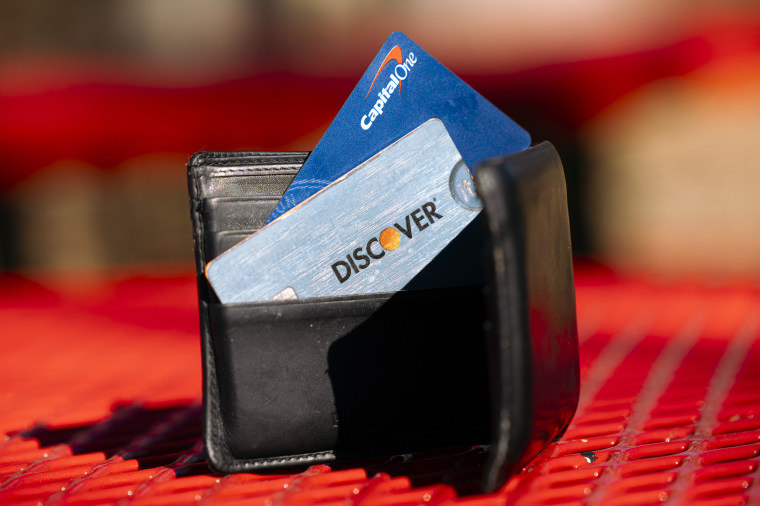Earlier this week, Capital One announced it would buy financial services provider Discover for $35.3 billion. If regulators approve the deal, the merger would leave Capital One as the largest issuer of consumer credit card loans in the United States. And beyond the implications of a shrinking credit card market for Americans’ wallets, the move is essentially an audacious bet that Americans will return Trump to the White House in November.
President Joe Biden’s tenure has ushered in a new age of anti-trust actions, anti-monopoly enforcement and crackdowns on consumer abuses. Biden’s regulators have given a thumbs-down to mergers everywhere from the airline to the biotechnology sector, on the grounds that many mergers in fact hurt consumers. They’re currently mounting challenges to the power of Big Tech. They also recently announced revamped merger guidelines, ones that would make it harder for deals to get approval going forward.
It’s hardly a secret that a second Trump administration would take a more hands-off approach to financial regulatory matters.
In fact, the Biden administration has brought the largest number of challenges to proposed deals since the government acquired the power to review proposed corporate marriages. His administration’s racked up a number of recent victories in court. Just last month, a federal judge put a stop to a proposed merger between Jet Blue and Spirit Airlines.
And then there are the consumer abuses — specifically, the junk fees that cost Americans billions of dollars annually. Last week, the Consumer Financial Protection Bureau released a survey showing that the nation’s largest banks charged consumers higher interest rates on credit card debt than their smaller rivals. Capital One was on an even more, er, select, list included as part of the study: one of 15 banks flagged for hosing its customers with an annual 30% APR on balances not paid off in full by the due date. And this finding comes at a time when both consumer balances and late payments are on the rise!
The Capital One-Discover merger runs entirely counter to the Biden administration’s philosophy. If it goes through, it will turn Capital One — already a financial colossus — into an even bigger giant. Is anyone outside of the financial sector asking for that? It seems unlikely the current administration had this on their wish list, since they are, after all, making the argument that when it comes to business, smaller is often better.
A second Trump administration, on the other hand, is highly unlikely to care much about any of this. It’s hardly a secret that a second Trump administration would take a more hands-off approach to financial regulatory matters. In fact, it’s exactly what happened in his first term.
Trump, occasional tough talk aside, went above and beyond for Big Business — especially when they made sure to say many nice things about him. He gave them not just tax cuts heavily tilted toward the 1%, but a significantly laxer regulatory environment, one where consumers' interests were so much collateral damage.
It’s possible the deal will result in merchant savings. But that’s far from proven.
Biden’s term in office has amounted to a whiplash level of change for the financial class. As I pointed out last month, Wall Street, despite the booming stock market, views Biden as hostile to corporate interests and is increasingly unhappy with his presidency.
Sure, merger supporters are claiming this deal will be good for consumers. They say Capital One purchasing Discover — which has its own payments network -- can deliver financial relief to the nation’s merchants and retailers, who complain bitterly about the high swipe fees Visa and Mastercard charge for the use of their systems.
Yes, it’s possible the deal will result in merchant savings. But that’s far from proven. And even if true, there is no guarantee they will pass those savings down to their customers — that is, you and me. As a result, consumer advocates are making their skepticism clear. This deal “reduces competition and would increase fees and credit costs for American families,” Sen. Elizabeth Warren wrote on Tuesday. “Regulators should block it immediately.”
Taken altogether, even the most optimistic salesperson would be hard-pressed to treat regulatory approval for this merger as a slam dunk as long as Biden is in office. But if they are looking at polls that show a decent chance of a Trump victory in November, they might well come to a different conclusion about its ultimate chances of success. Here’s hoping the supporters of this merger are making a bad bet — for both the sake of our wallets and our democracy.
